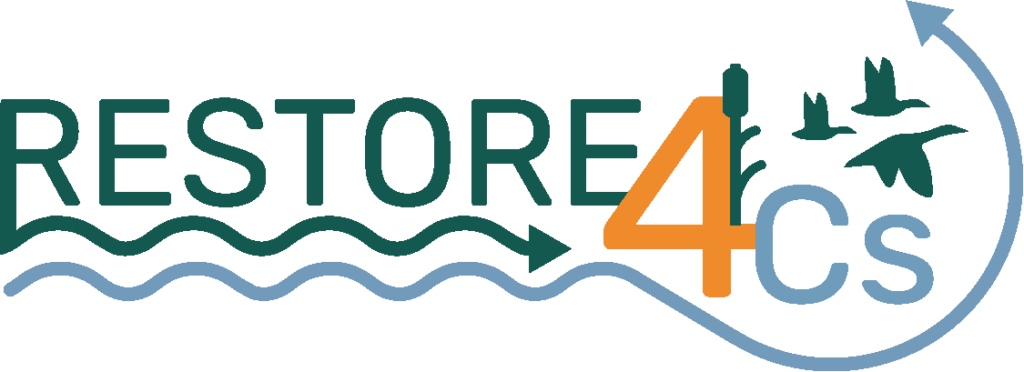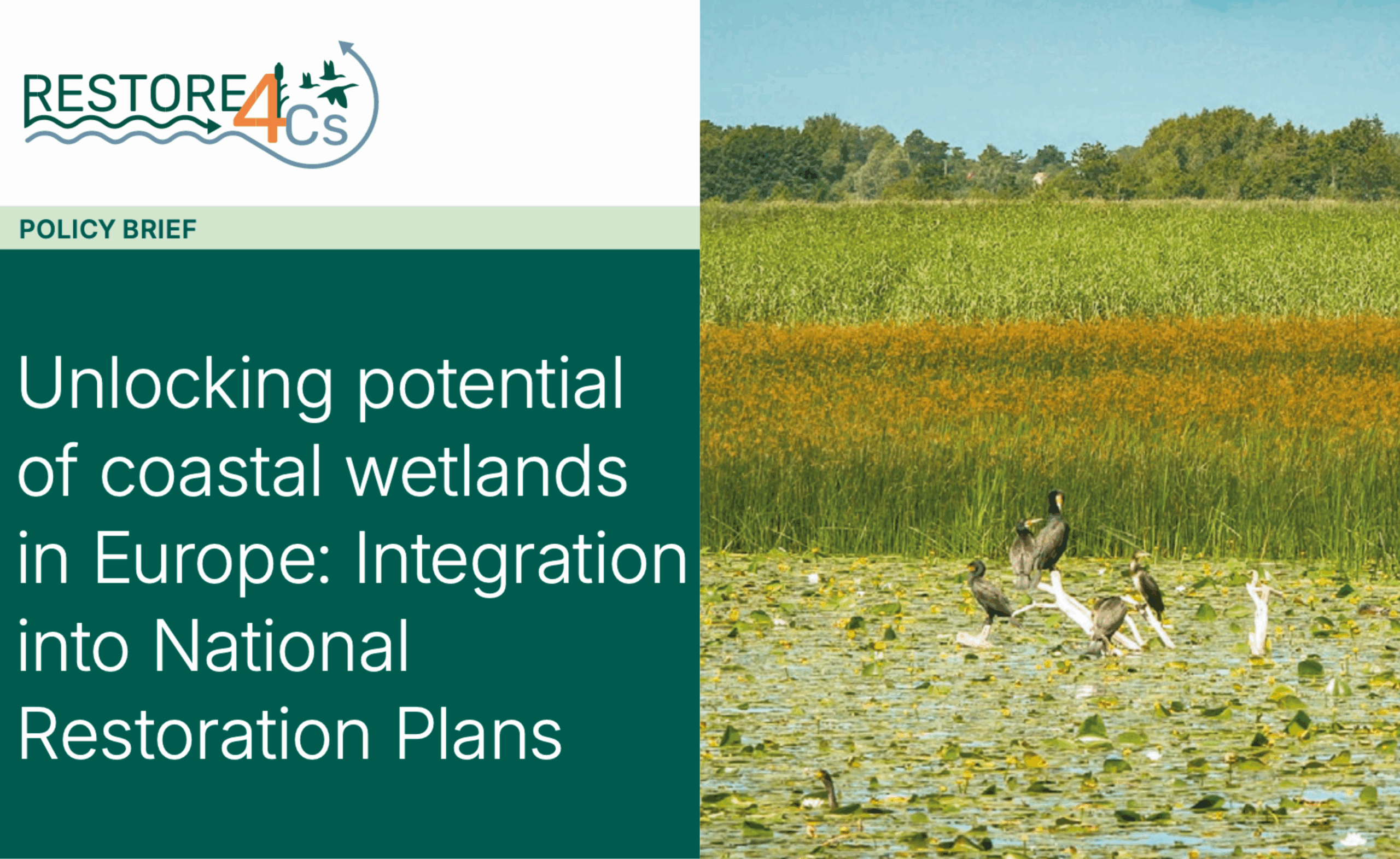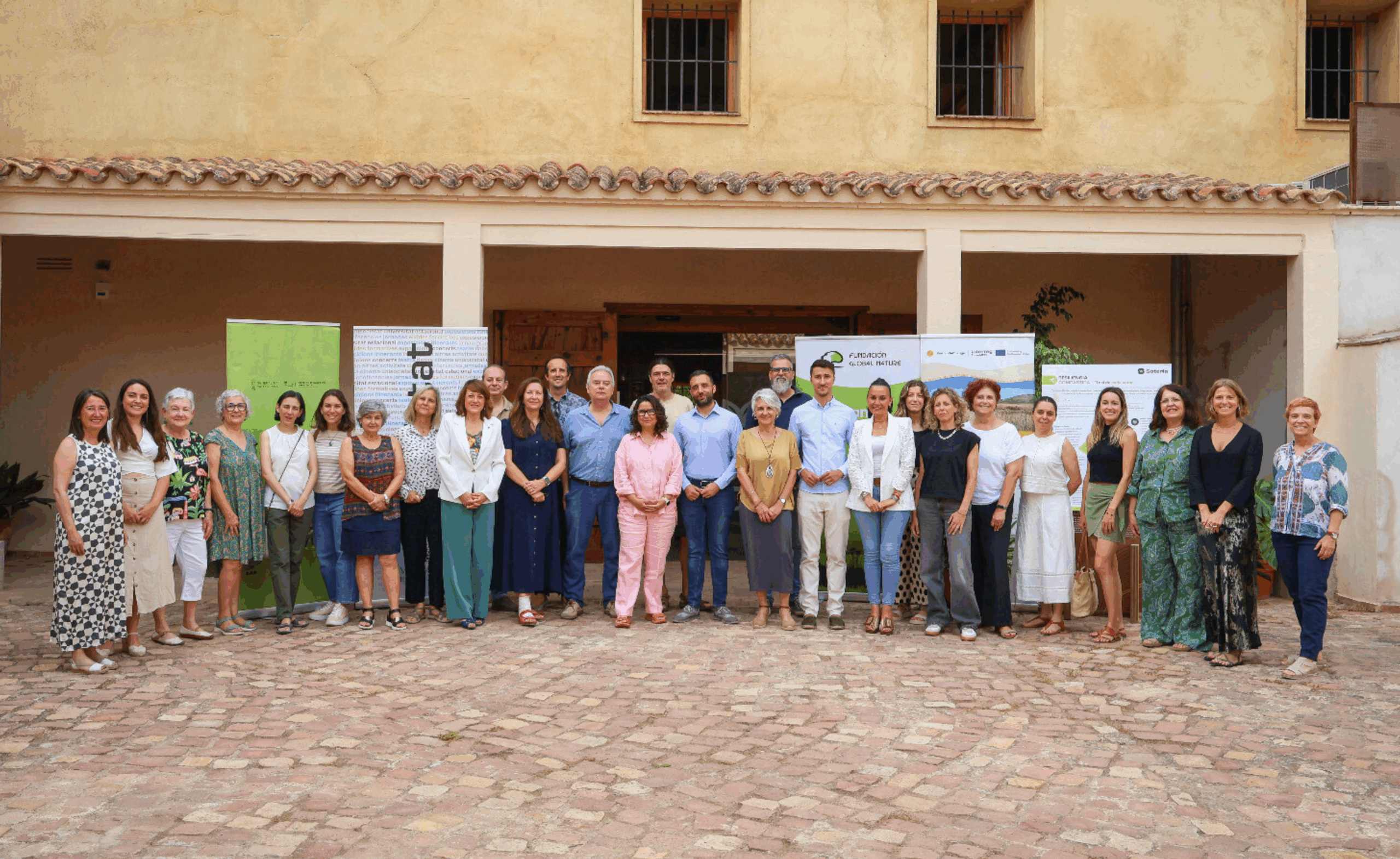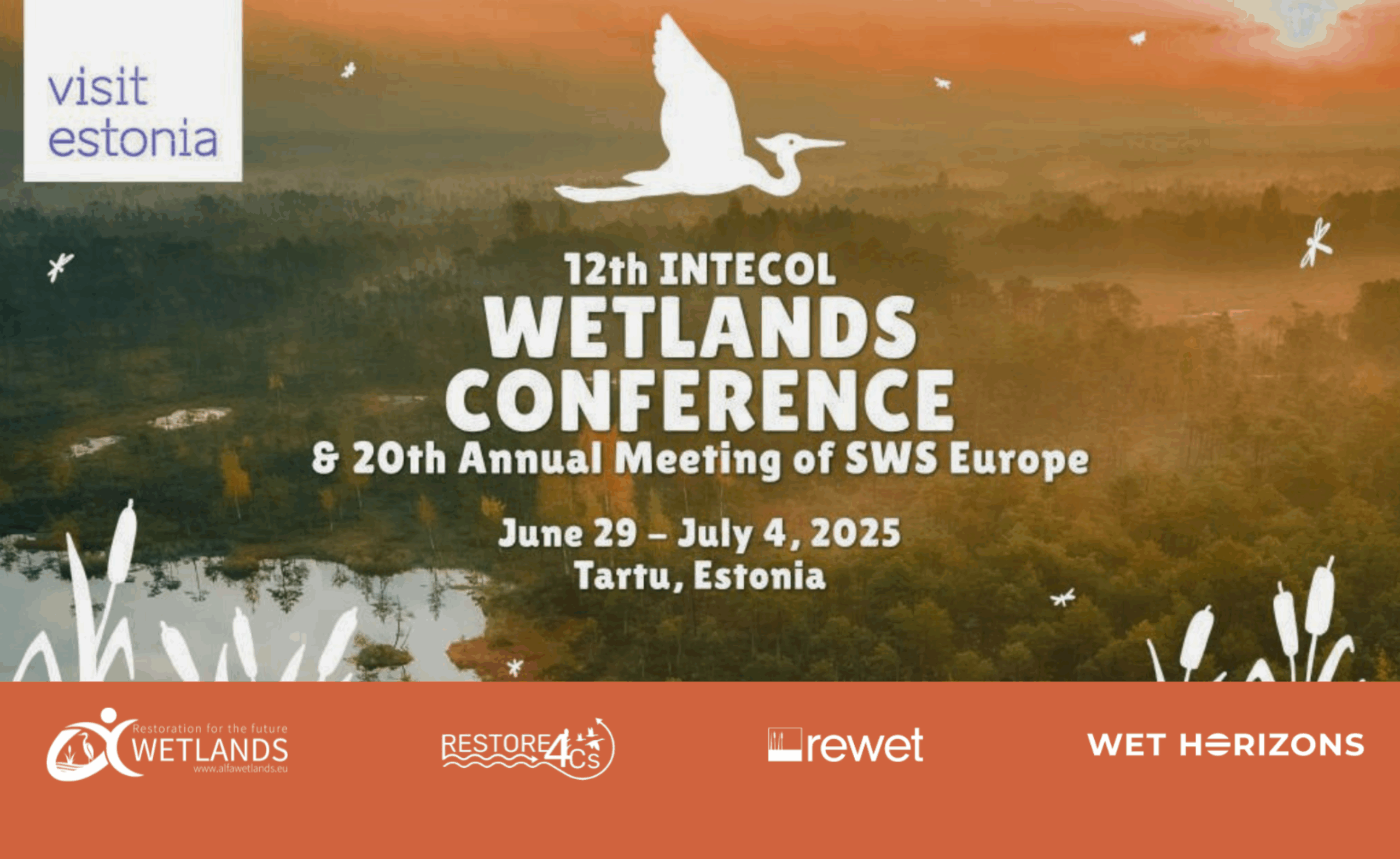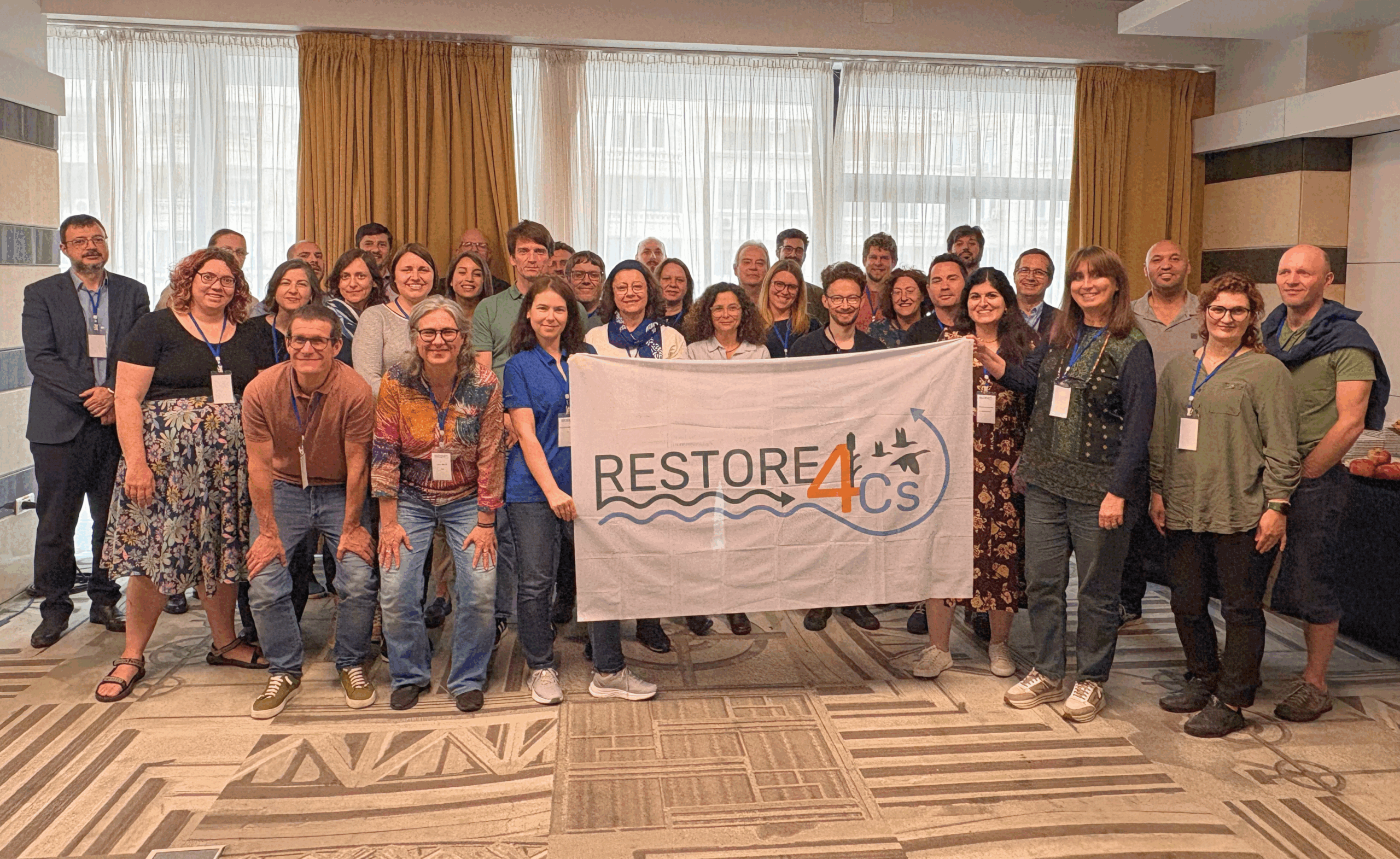What is the potential of wetlands? How can multiple challenges such as climate mitigation and adaptation, biodiversity conservation, disaster risk reduction and other threats to ecosystem services be tackled to foster mutually reinforcing actions and enhance co-benefits from wetland restoration?
All major European Union (EU) policies recognise the key role of wetlands to achieve the EU objectives regarding climate neutrality, biodiversity protection, zero-pollution, flood protection, and circular economy. Therefore, assessing the current extent and state of European wetlands, their current and potential greenhouse gases (GHG) profile and their medium to long-term mitigation capacity through restoration, or other measures, are key priorities of the European Union to tackle climate change. Led by the University of Aveiro, the recently awarded Horizon project RESTORE4Cs (Modelling RESTORation of wEtlands for Carbon pathways, Climate Change mitigation and adaptation, ecosystem services, and biodiversity, Co-benefits) will assess the role of restoration action on wetlands capacity in terms of climate change mitigation and a wide range of ecosystem services using an integrative socio-ecological systems approach.
The Kick Off Meeting, held in Aveiro from 16 to 19 January 2023, has officially marked the start of the project consortium’s activities, gathering representatives of 15 partners from 9 European countries, including universities, research institutes and infrastructures, small and medium enterprises, intergovernmental organisations and NGOs, bringing together a well-structured and multi-disciplinary team, holding all the essential expertise to be at the forefront of the research/policy interface. The meeting agenda covers all aspects of the project implementation, spanning from administrative issues, overview of the state of the art, coordination, communication and organisation of the work. Case pilot sites have been presented by the related local teams and a first visit in the field has been organised in the area pertaining to Ria de Aveiro.
Focusing on coastal wetlands across Europe, RESTORE4Cs will deliver standardised methodologies and approaches for the prioritisation of restoration, promoting carbon-storage and GHG emissions abatement, while improving the ecological status and the provision of additional ecosystem services, such as flood regulation and coastal erosion protection. More in detail, the project will provide online, user-friendly and integrated tools as unique entry points for wetland practitioners and decision makers regarding the prioritisation of conservation and restoration actions, in relation with their GHG performance as well as impacts on biodiversity and a wide range of ecosystem services while addressing in parallel three spatial scales (local, national, regional/pan-European) combined with the three targeted habitats (wetlands, floodplans and peatlands).
Mission
RESTORE4Cs‘ mission is to support the implementation of Climate and Biodiversity policies in the context of the European Green Deal, by:
● Gathering effectiveness data on restoration and land use management actions on climate services and other ecosystem and socio-economic services thanks to six Case Pilot sites across European coastal areas (Ebro Delta, Camargue, Ria de Aveiro, Oosterschelde/Grevelingen Delta, Curonian Lagoon, Danube Delta), including wetlands in different conditions of conservation, and to meta-analysis.
● Upscaling models and integrative assessment tools to wider geographical and ecological contexts (other wetland types, including floodplains and peatlands), using remote sensing and machine learning methods to develop an integrated status assessment of European wetlands.
● Structuring a European Community of Practice (ECoP) by connecting institutions, policymakers, scientists and the general public on wetlands restoration to support the implementation of the new EU Nature Restoration Law of the EU BDS 2030 and to foster climate mitigation and adaptation solutions.
● Co-designing a multi-actor approach for the project’s stakeholder interaction at the EU and local level and increasing the impact of existing cooperation.
Expected Results
Project results will be made available through a digital platform to serve as a Decision Support System (DSS) for stakeholders, that will steer project efforts as part of the newly created Community of Practice around wetland restoration for climate change mitigation, biodiversity, and other services. This online platform will provide stakeholders and wetland practitioners at all levels with more reliable estimation of cost and benefits to drive and prioritise wetlands restoration actions. Moreover, social acceptability of wetland restoration will be explored; this approach will be paramount to ensure the long-term transdisciplinary perspective of wetland management, as restoration offers a positive opportunity to both secure wetlands’ inherent ecological, environmental, and social values and increase the local communities’ sustainability.
